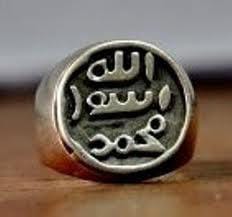Muslims believe the Qur’an was revealed to Prophet Muhammad (PBUH) by the Angel Gabriel over 23 years, and it’s regarded as the direct speech of God
As we mark the month of Rabi’ Al-Awwal, the third month in the Islamic calendar and the birth month of Prophet Muhammad, Peace be upon him, it’s an opportune time to reflect on his life, character, and enduring message. For more than 1.8 billion Muslims worldwide, Prophet Muhammad (PUBH) stands as a model of virtue, embodying principles of compassion, honesty, and justice that continue to resonate today.
Born in Mecca in the 6th century, Muhammad’s (PUBH) early life was marked by honesty and integrity. Even before his prophetic mission began, he was known as “Al-Amin” (the trustworthy) and “As-Sadiq” (the truthful). His reputation for fairness and reliability made him a respected figure in the Meccan community.
One of the most remarkable aspects of Prophet Muhammad’s (PBUH) character was his profound compassion and empathy. He was deeply committed to helping the needy and marginalized. Muhammad’s generosity was boundless; he often gave away his possessions to those in need, embodying the principle that true wealth lies not in material possessions, but in the ability to give and support others. His kindness extended to all creatures, advocating for mercy toward animals and the environment.
Within his family, Prophet Muhammad was a loving and supportive figure. He actively participated in household chores, mending his own clothes, and assisting with daily tasks. His wife, Aisha, noted that he was always ready to help and never shied away from any duty, no matter how small. This humility and willingness to serve set a powerful example for others to follow. The Quran speaks to his exemplary nature, stating, “And indeed, you are of a great moral character.” (Quran 68:4)
Prophet Muhammad’s interactions with his companions were marked by respect and equality. He valued their opinions and often sought their counsel. During the Battle of the Trench, for instance, he worked alongside his companions, digging the trench despite his position as a leader. This act of solidarity reinforced the bonds between him and his followers, fostering a sense of unity and shared purpose.
Even toward his enemies, Prophet Muhammad displayed remarkable patience and forgiveness. After the conquest of Mecca, instead of seeking revenge against those who had persecuted him and his followers, he declared a general amnesty, saying, “No reproach shall be on you this day. May Allah forgive you; He is the Most Merciful of the merciful.” This act of mercy and forgiveness won over many hearts and led to widespread acceptance of his message. The Quran captures this spirit of forgiveness and kindness, “So by mercy from Allah, (O Muhammad), you were lenient with them. And if you had been rude (in speech) and harsh in heart, they would have disbanded from about you.” (Quran 3:159)
Prophet Muhammad’s commitment to justice was unwavering. He treated everyone fairly, regardless of their social status or background. He proclaimed that no one is superior to another based on race or ethnicity, but only through piety and good conduct. This teaching promoted equality and discouraged discrimination, setting a standard for human rights and social justice that remains relevant today.
His leadership style was inclusive and consultative. Muhammad frequently sought the opinions of his companions before making decisions, demonstrating the importance of collective wisdom and shared responsibility. This approach fostered a sense of community and ensured that everyone’s voice was heard and valued.
The Quran highlights his role as a source of guidance and mercy, “And We have not sent you, (O Muhammad), except as a mercy to the worlds.” (Quran 21:107) This verse underscores the universal scope of his mission and the compassion that defined his life.
Prophet Muhammad’s (PBUH) personal life was characterized by gentleness and humility. He never displayed arrogance or pride, despite being the final messenger of God. He would sit and eat with the poor, visit the sick, and care for orphans, embodying the highest standards of moral conduct.
For Muslims, following Prophet Muhammad’s teachings and emulating his character is the true essence of Islam. His life serves as a timeless model of integrity, compassion, and devotion to God. As we reflect on his legacy during his birth month, it’s clear that the principles he championed — kindness, justice, and humility — are universal values that can guide and inspire people of all faiths and backgrounds.
In an age where the world often seems divided, the example of Prophet Muhammad (PBUH) offers a beacon of hope and a reminder of the power of compassion and integrity. His life story is not just a cornerstone of Islamic faith, but also a testament to the enduring potential for goodness within humanity.
The Wenatchee Valley Islamic Center opened in March at 38 N. Chelan Ave, Wenatchee. Visit facebook.com/wenatcheemuslimummah.
Post Disclaimer | Support Us
Support Us
The sailanmuslim.com web site entirely supported by individual donors and well wishers. If you regularly visit this site and wish to show your appreciation, or if you wish to see further development of sailanmuslim.com, please donate us
IMPORTANT : All content hosted on sailanmuslim.com is solely for non-commercial purposes and with the permission of original copyright holders. Any other use of the hosted content, such as for financial gain, requires express approval from the copyright owners.
 Sri lanka Muslims Web Portal Sri Lanka Muslims News Center
Sri lanka Muslims Web Portal Sri Lanka Muslims News Center
 Donate
Donate


